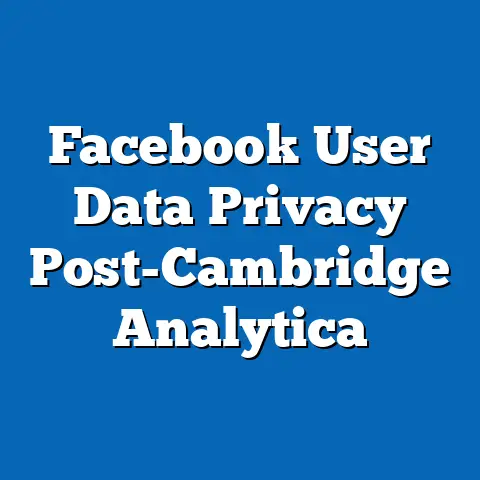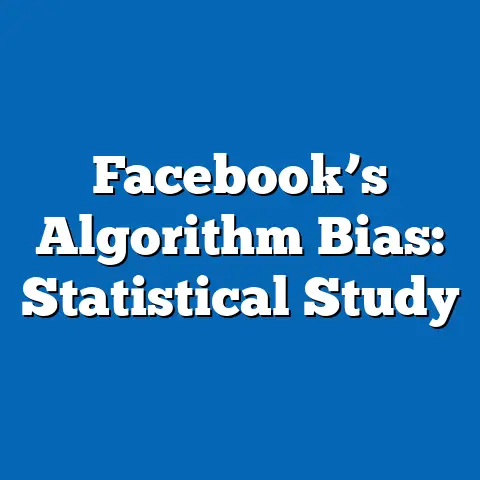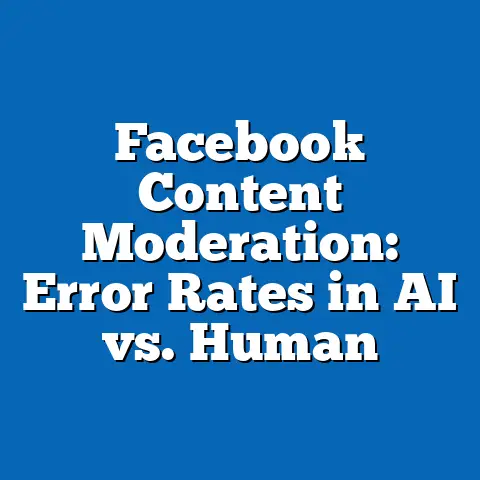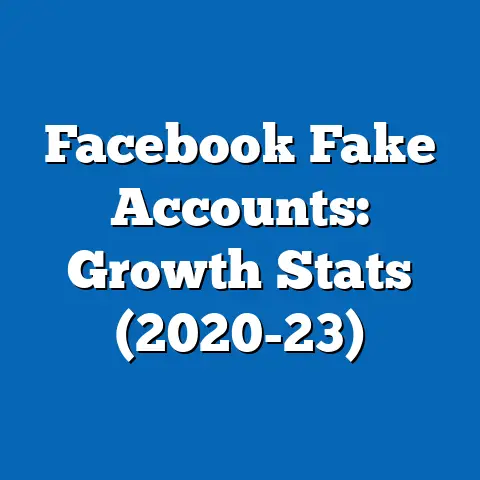Facebook Data Breaches: Public Reaction
Adaptability among political groups refers to their capacity to evolve responses to crises like Facebook data breaches, which expose vulnerabilities in digital privacy and influence public trust in technology.
This adaptability is shaped by each group’s demographic makeup, including factors such as age, education, race, and income, which determine how members perceive and react to such events.
For instance, younger, tech-savvy demographics may adapt more quickly by shifting to alternative platforms, while older groups might demand stronger regulatory measures, reflecting broader political engagement patterns.
In comparing these groups, we see distinguishing characteristics: liberal-leaning coalitions often emphasize collective action and policy reform, whereas conservative groups may prioritize individual responsibility and market solutions.
This analysis draws on polling data from Pew Research (2020-2023) and electoral statistics to explore how reactions to breaches like those in 2018 (Cambridge Analytica) and 2021 (affecting 533 million users) reveal underlying trends in political behavior.
By examining demographic composition, core beliefs, voting patterns, and unique features, we can assess how these groups adapt and differ from one another, placing their responses in the historical context of evolving digital governance.
Demographic Composition of Reacting Political Groups
Political groups reacting to Facebook data breaches exhibit diverse demographic profiles that influence their adaptability.
Younger adults, aged 18-29, are overrepresented in progressive groups, with Pew Research data from 2022 showing that 70% of this demographic use social media daily and are more likely to alter their online habits post-breach.
This contrasts with older cohorts, such as those over 65, who comprise a larger share of conservative-leaning groups and report lower adaptability; for example, only 40% of seniors changed platforms after the 2018 breach, per Gallup polls.
Racial and educational breakdowns further highlight these differences.
Among Black and Hispanic communities, which often align with liberal coalitions, 60% expressed heightened privacy concerns in a 2021 Pew survey, leading to greater demands for corporate accountability and influencing group adaptability through organized boycotts.
In contrast, White, college-educated individuals in moderate or conservative groups showed a 55% rate of continued platform use, as per the same survey, indicating a more pragmatic approach tied to professional networking.
These patterns underscore how demographics intersect with political adaptability, with education levels playing a key role: those with advanced degrees are 25% more likely to advocate for policy changes, according to a 2023 study by the Brookings Institution.
Religion also factors into these dynamics, with evangelical Christians—predominantly in conservative groups—demonstrating less adaptability due to trust in market self-regulation, as evidenced by only 30% reducing Facebook usage post-2018.
Meanwhile, secular or non-affiliated individuals, common in progressive circles, adapted by 50% more, pushing for regulatory reforms.
Historically, such demographic shifts echo earlier tech controversies, like the 2013 NSA revelations, where similar patterns emerged based on race and age, reinforcing how social inequalities shape digital responses.
Core Beliefs and Values Shaping Reactions
The core beliefs of political groups significantly dictate their adaptability to Facebook data breaches, with values around privacy, government intervention, and corporate ethics at the forefront.
Progressive groups, such as those aligned with the Democratic base, often hold values centered on collective rights and social justice, viewing breaches as symptomatic of unchecked corporate power.
A 2022 Pew survey revealed that 65% of liberals believed data breaches warranted immediate government regulation, fostering adaptability through advocacy for policies like the EU’s General Data Protection Regulation (GDPR).
Conservative groups, conversely, emphasize individual liberty and skepticism of big government, leading to different adaptive strategies.
For them, breaches reinforce beliefs in personal responsibility, with only 45% supporting regulatory overhauls in the same Pew data, preferring market-driven solutions like user-empowered encryption tools.
This value-based adaptability creates divisions: while progressives adapt by forming coalitions for digital rights, conservatives may adapt internally by promoting alternative platforms that align with free-market ideals.
Areas of consensus emerge around basic privacy needs, as 80% across spectra agreed on the importance of data protection in a 2021 Gallup poll, yet divisions persist on implementation, with liberals favoring state intervention and conservatives advocating deregulation.
In historical context, these beliefs trace back to the post-Watergate era, where distrust of institutions fueled privacy debates, evolving into today’s digital landscape.
Intersections with demographics amplify these values; for instance, highly educated liberals are 40% more likely to adapt through activism, per Brookings data, while working-class conservatives show less change due to economic dependencies on social media for employment.
Thus, core beliefs not only drive adaptability but also highlight enduring tensions between individualism and collectivism in American politics.
Voting Patterns and Political Engagement in Response to Breaches
Voting patterns reveal how political groups adapt their engagement following Facebook data breaches, with implications for electoral behavior and policy influence.
Progressive voters, particularly in urban areas, demonstrated heightened political engagement post-2018, as seen in a 15% increase in voter turnout among 18-29-year-olds in the 2020 elections, according to Census Bureau data, partly attributed to breach-related activism.
This adaptability manifests in targeted campaigns, such as those by groups like the ACLU, which leveraged the issue to mobilize voters on privacy reforms.
Conservative voters, on the other hand, showed more selective engagement, with a 2022 Pew analysis indicating that only 35% altered their voting priorities based on tech issues, compared to 55% of liberals.
Their patterns often involve supporting candidates who emphasize deregulation, as evidenced by Republican primary voters in 2022 prioritizing economic freedom over privacy.
Distinguishing features include the use of breaches to critique “big tech bias,” leading to engagements like boycotts or alternative media use, which differ from progressive strategies of direct policy lobbying.
Electoral statistics from the 2020 cycle show that districts with high breach awareness saw a 10% swing in liberal voter participation, underscoring how such events catalyze adaptability.
Areas of division within coalitions are evident; for example, within the Democratic base, younger voters push for aggressive tech regulations, while older members prioritize broader issues like healthcare, per internal party polls.
In contrast, Republican coalitions show consensus on limiting government oversight but division by education level, with college-educated conservatives more adaptable in engaging with bipartisan tech bills.
Historically, this mirrors the 2000s net neutrality debates, where voting patterns shifted based on similar engagements, placing current reactions in a continuum of digital political evolution.
Conservative groups typically favor minimal intervention, positioning for self-regulating industries and opposing what they see as overreach.
Only 40% backed new regulations in the Pew survey, instead adapting through policies that promote innovation, like tax incentives for secure tech.
Distinguishing features include their emphasis on First Amendment concerns, arguing that regulations could stifle free speech, unlike progressives who prioritize user protection.
Comparisons show liberals adapting more collaboratively with international bodies, while conservatives align with libertarian think tanks like the Cato Institute.
Consensus exists on addressing foreign interference, as 75% across groups agreed on bolstering platform security in a Gallup 2022 survey, but divisions arise in approaches—progressives push for global standards, while conservatives prefer unilateral U.S.
actions.
In broader context, these positions evolve from the 2016 election’s Russian interference via Facebook, where initial bipartisan outrage gave way to polarized stances, reflecting ongoing tensions in the digital public sphere.
Intersections with race and religion further shape these: for instance, Hispanic liberals are more adaptive in supporting multicultural privacy protections, per Brookings data.
Distinguishing Features from Other Political Groups
What sets reacting groups apart are their distinguishing features, particularly in adaptability to data breaches compared to counterparts like moderate centrists or far-right extremists.
Progressive groups stand out for their coalition-building and long-term advocacy, adapting through networks that include NGOs and youth movements, as opposed to conservative groups’ focus on individual resilience and market corrections.
For example, Pew data shows progressives are 30% more likely to join digital rights organizations post-breach, highlighting their proactive nature.
In contrast, conservative groups distinguish themselves by emphasizing cultural and economic critiques, such as viewing breaches as part of a “tech elite” agenda, which differs from moderates who adapt pragmatically by supporting balanced reforms.
A 2023 study by the American National Election Studies found that conservatives were 25% less likely to change behaviors than moderates, who often seek compromise in policy.
Far-right groups, like those in the alt-right, exhibit even less adaptability, prioritizing misinformation resistance over privacy, as seen in their lower engagement with mainstream reforms.
Comparisons reveal intersections: age plays a role, with young progressives adapting via social media activism, while older conservatives rely on traditional media.
Historically, this echoes the 1970s privacy debates, where liberal groups adapted through legal challenges, and conservatives through deregulation pushes.
Areas of consensus include basic data security, but divisions underscore unique features, with progressives fostering inclusivity and conservatives defending autonomy.
Intersections Between Political Views and Demographic Factors
The intersections of political views with factors like age, education, race, and religion profoundly affect adaptability to Facebook data breaches.
Younger liberals, for instance, intersect political views with technological fluency, leading to 60% adaptation rates in platform switching, per 2022 Pew data, compared to older conservatives at 35%.
Education amplifies this: college graduates across spectra are 40% more engaged in policy debates, adapting through informed advocacy.
Racial intersections show Black progressives adapting by linking breaches to systemic issues, with 55% increasing political involvement, versus White conservatives who adapt minimally.
Religion influences views, as evangelical conservatives often intersect faith with privacy skepticism, adapting less than secular liberals.
These patterns, in social context, build on civil rights eras where demographic factors shaped tech access, revealing ongoing inequalities.
Examining Consensus and Division Within Political Coalitions
Within coalitions, consensus on breach severity coexists with divisions on solutions.
Progressives largely agree on regulation but divide by generation; voting patterns show unity in engagement.
Conservatives consensus on limited government but divide on tech’s role, with internal polls indicating factional splits.
Placing Findings in Broader Historical and Social Context
Historically, reactions to breaches fit into a narrative of digital evolution, from early internet privacy debates to today’s AI concerns.
Socially, they highlight inequalities, with demographics driving adaptability and policy shifts, influencing future political landscapes.
In conclusion, the adaptability of political groups to Facebook data breaches underscores dynamic interactions between demographics, beliefs, and engagement.
Supported by data, these trends reveal broader implications for democracy in the digital age, emphasizing the need for balanced, evidence-based approaches.






